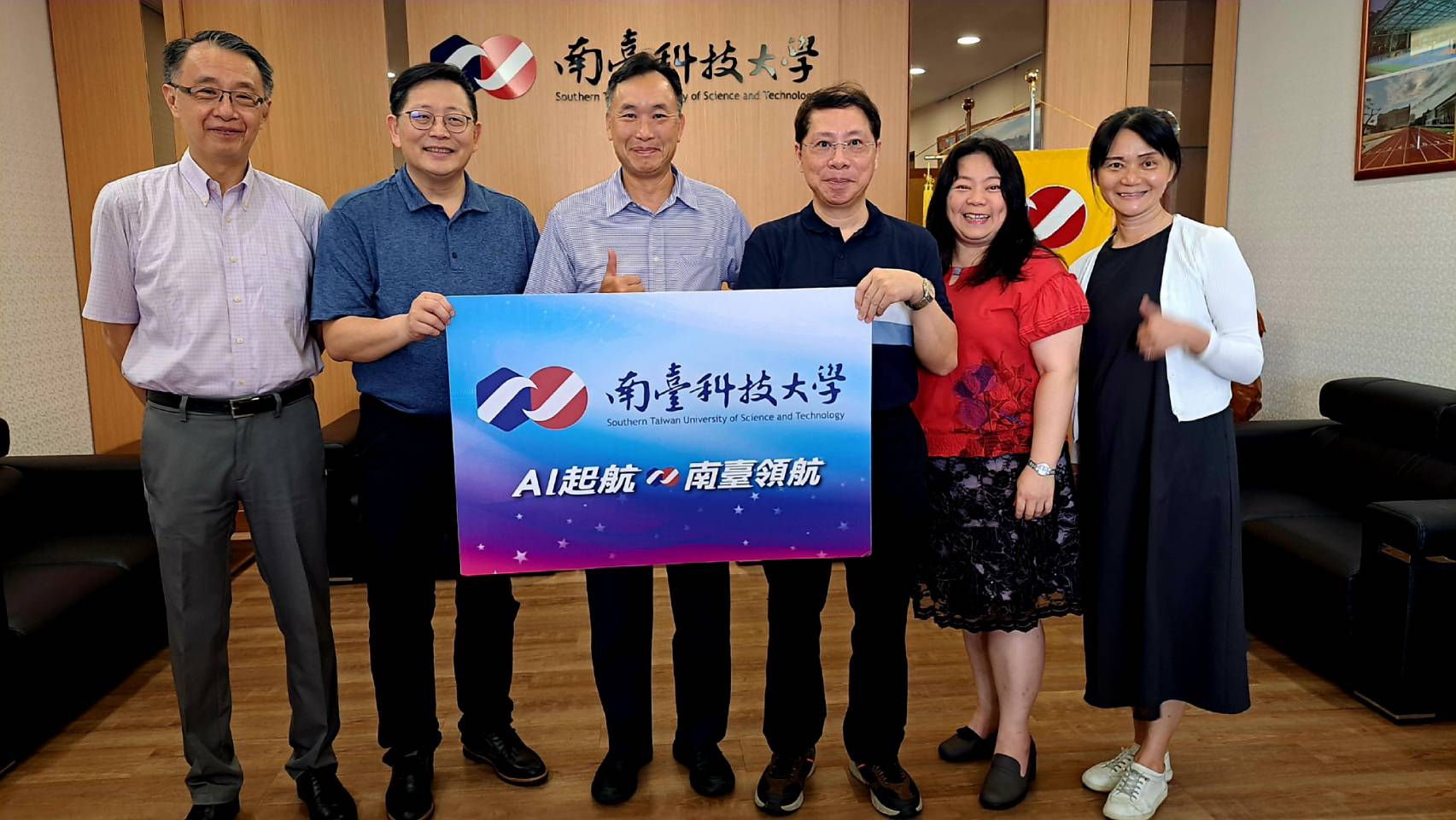Amid the government’s vigorous promotion of the Greater South New Silicon Valley
Promotion Program, STUST has demonstrated remarkable cross-domain integration.
Leveraging the strong research and development capabilities and forward-looking
vision of seven departments across three colleges—including the College of Business
Administration (Departments of Hospitality Management, Marketing and Logistics
Management, and Information Management), the College of Engineering
(Departments of Electronic Engineering, Computer Engineering, and Electrical
Engineering), and the College of Smart Health (Department of Biotechnology and
Food Technology)—STUST successfully secured three grants under the 2025 Smart
Rainforest Industry Creation Subsidy Program – Smart Catering Demonstration Case.
This remarkable achievement makes STUST the university with the highest number
of funded projects in this category nationwide. It not only cements STUST’s leading
role in smart catering R&D and cross-disciplinary industry-academia collaboration
but also serves as a model for the digital transformation of Taiwan’s catering
industry. Furthermore, it paves the way for students to seamlessly connect with
future job markets.

【AI Fuels the Future of Catering—STUST Leads the Way in the Greater South!
President Nen-fu Huang (center), Dean Ren-peng Huang (third from right) of the
College of Business Administration, Chair Jia-sheng Yeh (second from left) of the
Department of Hospitality Management, Chair Ya-ling Tsai of the Department of
Marketing and Logistics Management (first from right), along with faculty members
Guo-ning Liu (first from left) and Xu-yi Huang (second from right) from the
Department of Hospitality Management, proudly showcased STUST’s exceptional
success in winning three cases in the Smart Rainforest Catering Project. The
collaboration between the Department of Hospitality Management and the
Department of Marketing and Logistics Management brought the university to the
forefront, strongly supporting the comprehensive advancement of the Greater South
industry.】
The Smart Rainforest Industry Creation Subsidy Program—Smart Catering
Demonstration Case, jointly promoted by the Ministry of Economic Affairs and the
National Science Council, is an important part of the Greater Southern New Silicon
Valley Promotion Program. It aims to drive the digital transformation of the catering
industry in the southern region (Chiayi, Tainan, Kaohsiung, Pingtung) through AI
technology, improve operational efficiency, reduce costs, and promote innovative
business models. This plan has clear goals and hopes to drive regional economic
growth through the close connection between academic research and industry, and
form a diffuse AI industry ecosystem for the commercial service industry. The
outstanding performance of STUST this time is a strong response to the core goal of
this plan.
南STUST stood out in this national selection, with all three of its awarded projects
featuring interdisciplinary collaboration across departments and close cooperation
with leading industry partners. These projects demonstrate not only high practical
application value but also strong future development potential. Among them, the
WU WHA MA AI Smart Catering Next Generation Store – Greater South
Demonstration Project, in partnership with the well-known restaurant chain WU
WHA MA International Co., Ltd., aims to develop a more efficient and intelligent
future store operation model. In addition, STUST has partnered with Four-leaf
International Channel Integration Co., Ltd. and Taipei University of Technology to co-
develop the Smart Catering: AI Assistance and Decision-Making System, which uses
AI to provide precise decision-making support and enhance management efficiency
in the foodservice sector. Another project, the Hi-Lai Food Smart Catering AI
Application Demonstration Project, developed in collaboration with catering giant
Hi-Lai Foods Co., Ltd., focuses on implementing AI voice reservation technology in
front-end customer service, as well as innovative kitchen waste reduction strategies
for sustainable operations. This project also includes joint efforts with Jingwen
University of Science and Technology and Soochow University.
These three projects collectively encompass a wide range of smart technology
applications—including AI-assisted decision-making, voice reservation systems, AI-
powered ordering and delivery, intelligent store operations, and production
management—as well as environmentally sustainable practices like kitchen waste
reduction. More than just a technological upgrade, these initiatives represent a
profound exploration into the future development model of the catering industry.
Jia-sheng Yeh, Chair of the Department of Hospitality Management at STUST, noted
that securing all three subsidies independently is a testament to the university’s
forward-thinking approach and robust R&D capabilities in smart catering. It further
reinforces STUST’s position as a trailblazer in the industry’s digital transformation.
These projects also offer students valuable opportunities for practical training and
internships that are directly aligned with real industry needs. On campus, students
can engage in cutting-edge applications of AI, witnessing firsthand how such
technologies are deployed to resolve critical challenges in the field—thus nurturing
well-rounded talents equipped for the future of AI-integrated hospitality and
tourism.
In recent years, the Department of Hospitality Management at STUST has
strategically focused on three core pillars: smart catering, sustainable management,
and cross-domain innovation. The department has proactively introduced advanced
technologies such as AI, IoT (Internet of Things), and data analytics, integrating them
deeply with traditional strengths like culinary expertise, exceptional service, and
operational efficiency. The successful approval of these three subsidy cases reflects
the department’s commitment to its integrated education model, significantly
enhancing students’ employability and competitiveness in the smart catering sector.
President Nen-fu Huang of STUST emphasized that, as AI technology rapidly
evolves, the catering industry is undergoing an unprecedented transformation—and
universities have a critical role to play. STUST will continue to invest in resources and
strengthen collaboration with industry partners, not only to deliver innovative
solutions for the sector but also to create more hands-on learning opportunities for
students. The goal is to cultivate future leaders in hospitality who possess both
digital literacy and interdisciplinary integration capabilities. President Huang warmly
invites all students passionate about smart hospitality and eager to stay at the
forefront of industry innovation to join the Department of Hospitality Management
at STUST, and together, shape a smarter future for the catering world.